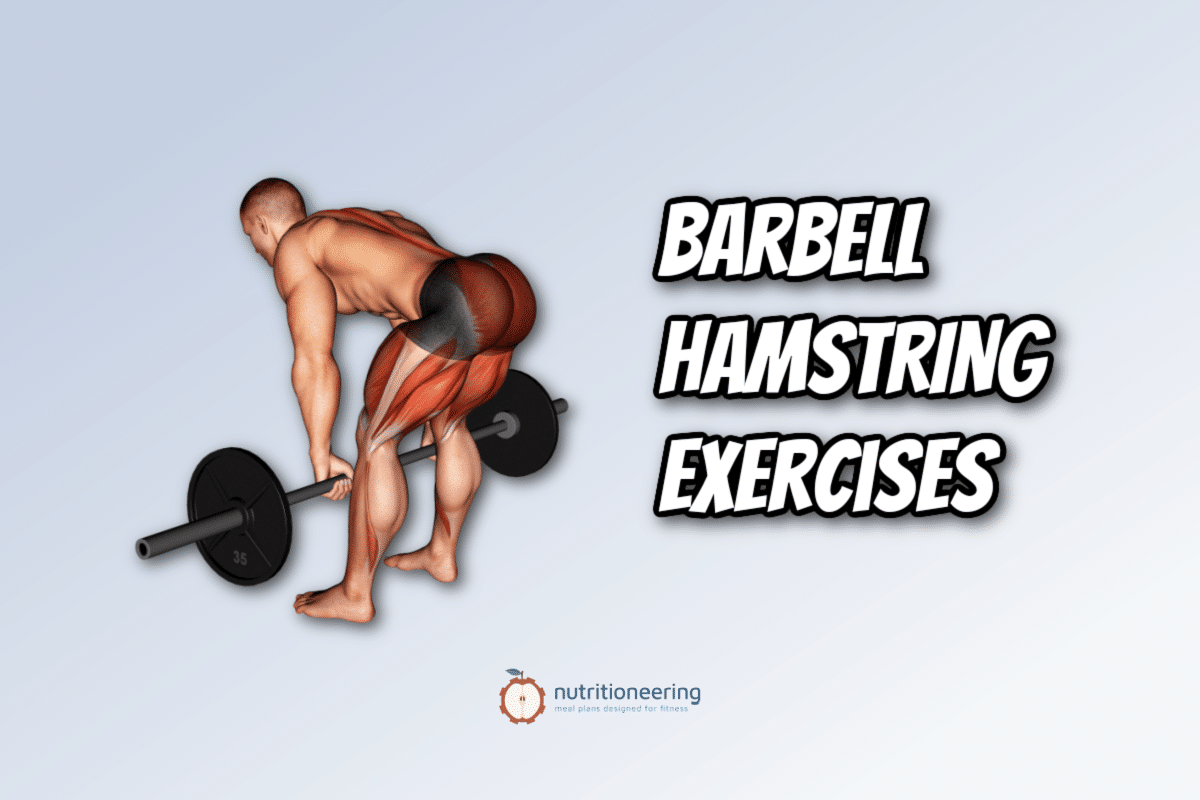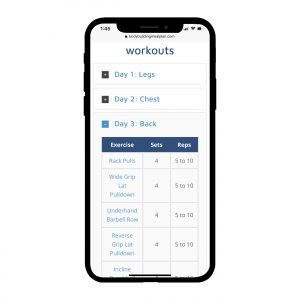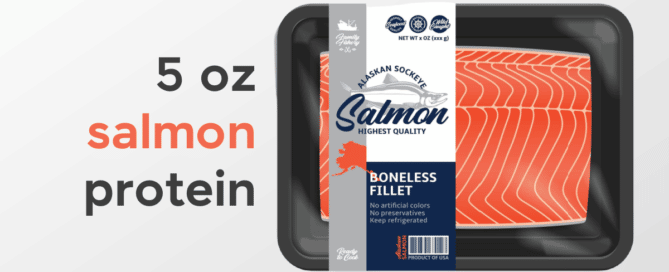7 Best Barbell Hamstring Exercises
By: Jeremy Fox, CNC, CPT – Published: March 28, 2023
Your hamstring muscles play a critical role in nearly every lower body movement. Therefore, strong hamstrings are essential for overall power and athletic performance.
For this reason, I’ve assembled the best hamstring exercises you can do with nothing more than a barbell. So you can build your hamstrings at home or in less time at the gym.
Keep scrolling for the 7 best barbell hamstring exercises. Plus a few bonus exercises and a complete barbell hamstring workout.

What Are Barbell Hamstring Exercises?
The hamstrings are a group of muscles on the back of your legs that primarily work to flex the knee joint. However, the hamstrings are also involved in hip extension.
Barbell hamstring exercises generally involve hip hinge movements using a standard Olympic bar, EZ Bar, or a smaller fixed-weight bar. Many are compound movements also involving the glutes and spinal erectors.
Unfortunately, the barbell isn’t great for replicating hamstring isolation exercises like machine leg curls. However, I will show you a few isolation barbell hamstring exercises that involve only one joint.
In addition, I’ll explain how to modify compound exercises to target your hamstrings specifically.

7 Best Barbell Hamstring Exercises
Now it’s time to share the best barbell hamstring exercises. These exercises are ideal for targeting the hamstrings with less involvement from supporting muscle groups.
1. Romanian Deadlift
The Romanian deadlift, or RDL, is like a partial deadlift where you focus on the top half of the range of motion. In addition, you bend more at the hips than the knees.
Again, this hip hinge movement is excellent for strengthening the hamstrings. And the barbell allows you to use some heavier weights than other variations.
To do a Romanian deadlift, begin with the barbell on the floor. Then, step up to the bar and plant your feet hip-width apart.
Now bend forward and grab the bar with an overhand grip outside your shins. Then lift the bar to your hip level like a conventional deadlift.
Push your hips back from this starting position and bend your knees slightly as you lower the bar. Keep the bar as close to the front of your thighs as possible.
Once the bar passes below your knees, squeeze your hamstrings, and drive your hips forward to raise the bar back to the starting position.
2. Stiff Leg Deadlift
The stiff leg deadlift or SLDL is nearly identical to the standard RDL, except there is little to no knee bend. In addition, you typically lower the bar almost to the floor during the SLDL.
Furthermore, these minor differences result in slightly different muscle loading. While the SLDL is still a good hamstring exercise, it generally activates the glutes more than RDLs1.
Related: Romanian Deadlift vs Stiff Leg Deadlift Comparison
Performing the stiff leg deadlift is virtually the same as the Romanian deadlift. However, keep your knees almost straight as you lower the bar.
My YouTube channel has dozens of videos showing you how to do a variety of bodybuilding exercises. You’ll learn how to target and build specific muscle groups in 90 seconds or less. Click HERE to subscribe, or click on the button below!
3. Good Mornings
The good morning exercise is another exercise resembling the Romanian deadlift. Except for this time, you hold the barbell on the back of your shoulders like a squat.
Your center of gravity shifts forward from this position when you perform the hip hinge movement. And this change in loading requires less weight to get the same hamstring activation.
While the movement and form are virtually identical to the RDL, the good morning feels different on your hamstrings. So it’s worth rotating into your leg workouts.
4. Landmine Romanian Deadlift
A landmine is a pivoting base that attaches to one end of a barbell. And it turns your bar into a giant lever for performing various exercises.
One such exercise is the landmine RDL. The movement resembles standard barbell RDLs, but you hold the bar between your legs.
In addition, the landmine creates a different movement path and changes the feel of the RDL exercise. So you might like this variation if you’re bored of regular RDLs.
To do a landmine RDL, set up the barbell and place weight plates on the free end if you want added resistance. Also, it helps to have a handle for holding the barbell inside the sleeve.
For example, a close grip “v-bar” style handle works great for keeping your hands in a neutral position close to the barbell.
5. Deficit Deadlift
A deficit deadlift is a conventional deadlift performed while standing on a block or weight plate. Raising your feet off the floor increases the range of motion required during the deadlift.
Moreover, the deficit deadlift emphasizes the low end of the range of motion, where the hamstrings are most involved. So this deadlift variation is best for building strong hamstrings.
To set up a deficit deadlift, place a small block or weight plate beneath the center of the bar. Start with a ½” to 1” deficit to get a feel for the difference.
Eventually, you can work your way up to a 1-2” deficit. But don’t get carried away with extreme deficits, or you could risk injuring your lower back.
6. Nordic Hamstring Curl
The Nordic hamstring curl is a unique bodyweight exercise designed to work the hamstrings with minimal hip rotation. While you don’t need a barbell for this exercise, you can use it as an anchor for your feet.
In the video below, I use a weight rack to hold my heels during Nordic hamstring curls. But you could just as quickly fix a barbell about 6” off the floor and use that for the anchor point.
For example, try putting 25 lb plates on your bar to get the desired height. Then secure the bar inside a power rack or use blocks in front of the plates.
Once anchored, kneel in front of the bar with your heels hooked under it. Then slowly lean forward without bending your hips.
Hold your body weight up as long as possible before releasing and pushing back up to the starting position. For beginners, it may help to have a bench or block to shorten the range of motion.
7. Barbell Hyperextension
The hyperextension is another type of hip hinge movement performed on a glute-ham developer (GHD). Some GHDs are at about a 45-degree angle, while others are horizontal.
Whichever one you have, the hyperextension involves anchoring your legs in the GHD and extending your hips. As the machine name suggests, this movement works the glutes and hamstrings.
After a few weeks, you’ll probably be able to do quite a few reps with just your body weight. Adding resistance by holding a barbell can be beneficial, as shown below.
Additional Barbell Hamstring Exercises
The barbell exercises for hamstrings you’ve seen so far are best for isolating this muscle group. However, several other exercises work the hamstrings along with other muscle groups.
So now I’ll show you how to modify these exercises to focus more on hamstring development.
Barbell Hip Thrusts
Barbell hip thrusts primarily target the glute muscles. But you must also engage your hamstrings to prevent your knees from extending.
Try placing your feet a couple of inches further away from the bench to get more hamstring activation during hip thrusts.
Barbell Back Squats
Barbell back squats are the king of lower body exercises. With this exercise, you can build your quads, glutes, hamstrings, and lower back.
But not all barbell squats are equal. And some key variables shift the load distribution, changing the muscles worked.
For example, squat stance width has a significant effect on muscle activation. And studies show that a wider stance generally results in more glute and hamstring activation2.
In addition, bar placement also significantly impacts squat mechanics and muscle recruitment. So for targeting your hamstrings, it’s generally better to use a low bar position on squats.
Conventional Deadlifts
Conventional deadlifts are to the posterior chain what squats are to the lower body. In other words, deadlifts are the single best exercise for strengthening the hamstrings, glutes, and lower back.
By comparison, you can pull much heavier weights on a standard deadlift than with RDLs or other deadlift variations. So it’s an excellent exercise for total body strength.
However, the sumo deadlift stance may not be ideal when targeting hamstrings as it involves more quadriceps3. Similarly, hex bar deadlifts result in more quad activation as well4.
Therefore, the conventional deadlift stance is probably best for the hamstrings.
Custom Nutrition & Workout Plan
Get a personalized meal plan built to fit your body and lifestyle. Including a custom workout routine designed around your fitness goals.
With your custom plan, you will finally be able to burn fat, build muscle, and transform your body. All this for just $19.99!
Click here to choose your plan.
Barbell Hamstring Workout
Now you have a good idea of the best barbell exercises for working your hamstrings. But you might be confused about assembling them into a productive workout.
So here is an example hamstring workout using some of the exercises above.
Barbell Hamstring Workout:
- Wide Stance Squats
- 3 sets, 8-12 reps
- Romanian Deadlifts
- 3 sets, 8-12 reps
- Hip Thrusts
- 3 sets, 8-12 reps
- Hyperextensions
- 2 sets, 12-15 reps
- Nordic Hamstring Curls
- 2 sets to failure
This barbell hamstring workout starts with a compound movement and becomes more isolation-focused. So by the end of the workout, your hamstrings should be spent!
More Exercises & Workouts
The barbell hamstring exercises and workout in this article will help you build leg size and strength. But, if possible, you should include some dumbbell, cable, and machine exercises to get a complete hamstring workout.
So here are some additional resources for planning your training sessions.
How Often to Deadlift Based on Several Factors
Best Deadlift Grip for Safety & Strength
When to Use Heel Elevated Squats
Smith Machine Split Squat Foot Placement
With this information, you’re on your way to building bigger and stronger hamstrings with a barbell. For more fitness and nutrition-related information, check out my other helpful articles below!
References
1) Coratella, Giuseppe, et al. “An Electromyographic Analysis of Romanian, Step-Romanian, and Stiff-Leg Deadlift: Implication for Resistance Training.” International Journal of Environmental Research and Public Health 19.3 (2022): 1903.
2) Lu, Zhenghui, et al. “Effect of Heel Lift Insoles on Lower Extremity Muscle Activation and Joint Work during Barbell Squats.” Bioengineering 9.7 (2022): 301.
3) Gene-Morales, Javier, et al. “A systematic review on the muscular activation on the lower limbs with five different variations of the squat exercise.” (2020).
4) Camara, Kevin D., et al. “An examination of muscle activation and power characteristics while performing the deadlift exercise with straight and hexagonal barbells.” The Journal of Strength & Conditioning Research 30.5 (2016): 1183-1188.














